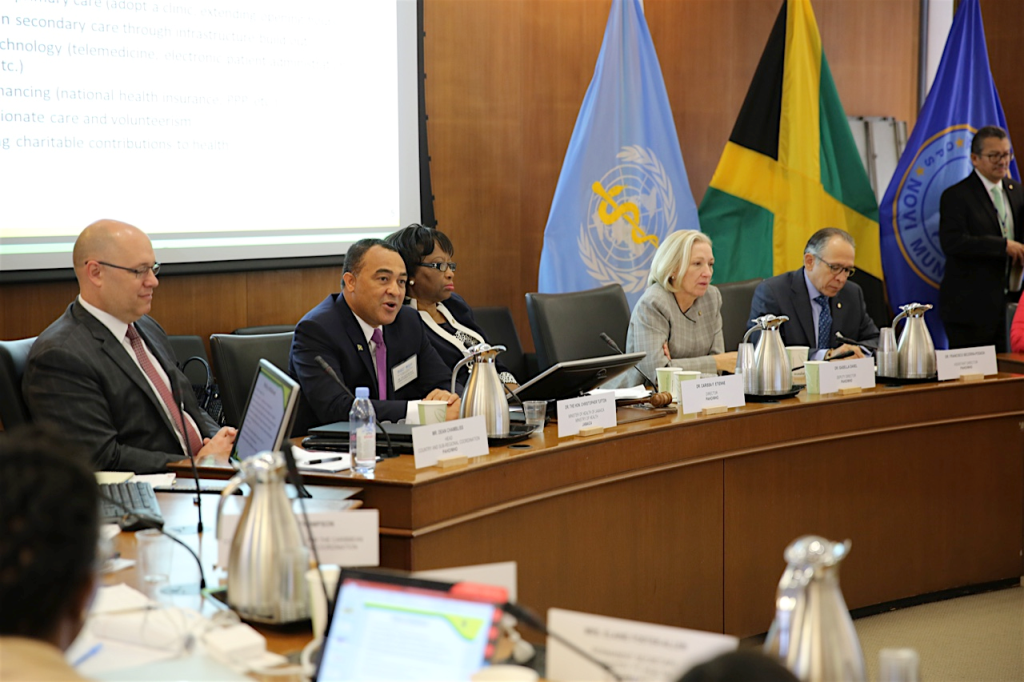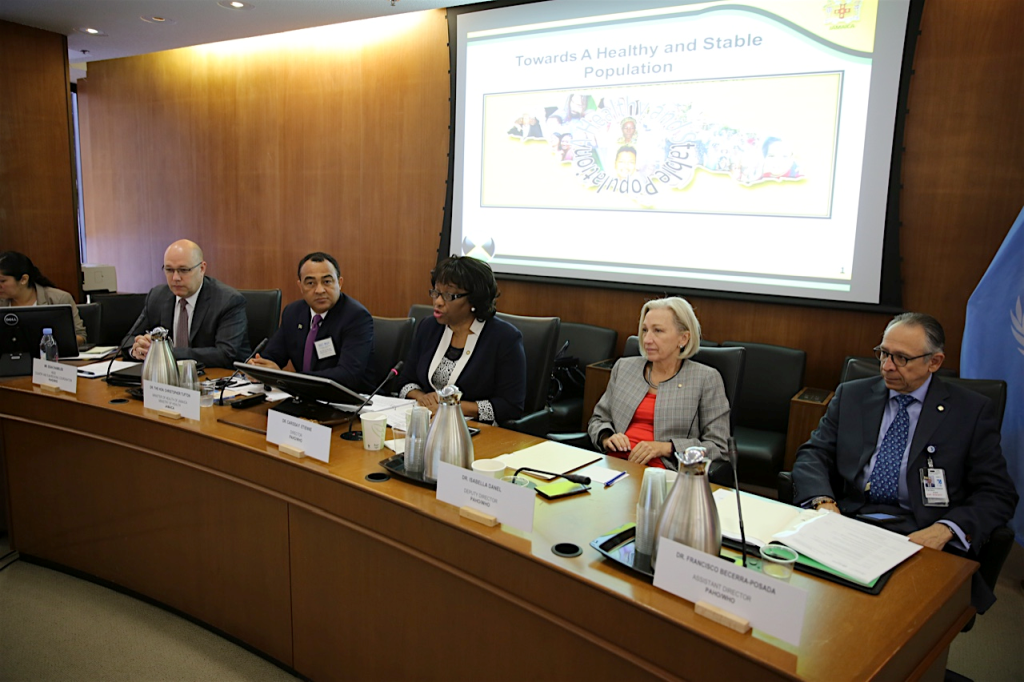Washington, D.C., 15 September 2016 (PAHO/WHO) - Jamaica is implementing a 10-year strategic plan to improve health and attain its vision of a healthy and stable population, Jamaican Minister of Health Dr. Christopher Tufton said today at the Pan American Health Organization (PAHO) during a presentation on the country's health situation, priority health issues and needs.

Demographic changes, especially an increase in the elderly population, are likely to increase demand for medical and diagnostic services to manage acute and chronic conditions and increase the need for long-term care, he said.
Although Jamaica has high life expectancy (73.8 years) and low infant mortality (currently 19 deaths per 1,000 live births), the country faces rising rates of chronic diseases including heart disease, cancer, and diabetes, which have become the leading causes of death. Physical activity levels are down, and the percentage of Jamaicans who are overweight is up to 26.4%. Managing the consumption of sugar, salt and fats in the diet is a priority, Tufton said.

Jamaica's 10-year strategic health plan calls for improvements in health service delivery, the health workforce, health information, and governance. Tufton said the challenge of financing these and other needed improvements, including better use of technology for such as telemedicine and electronic patient administration, is "a real one."
With the majority of Jamaica's 318 government health facilities and 24 hospitals now being over 50 years old, the country also faces the challenge of refurbishing or rebuilding many of these facilities.

Vector-borne diseases such as chikungunya and Zika are affecting people in Jamaica, and the country has recorded 110 cases and 10 deaths from Guillain-Barré syndrome (GBS), Tufton said, noting that it costs around $13,000 to treat each patient with GBS, which is linked to Zika virus infections. Although the country does has a vector control program, "We need greater emphasis on mosquito control," he said.
In health financing, Jamaica is developing national health insurance and focusing on compassionate care and expanding charitable contributions, Tufton explained.



